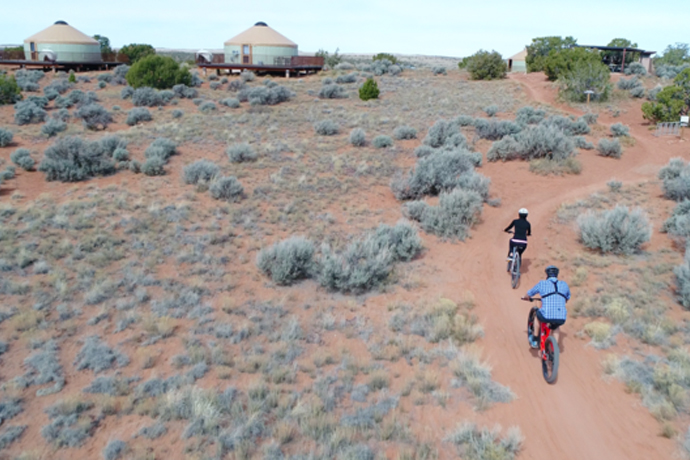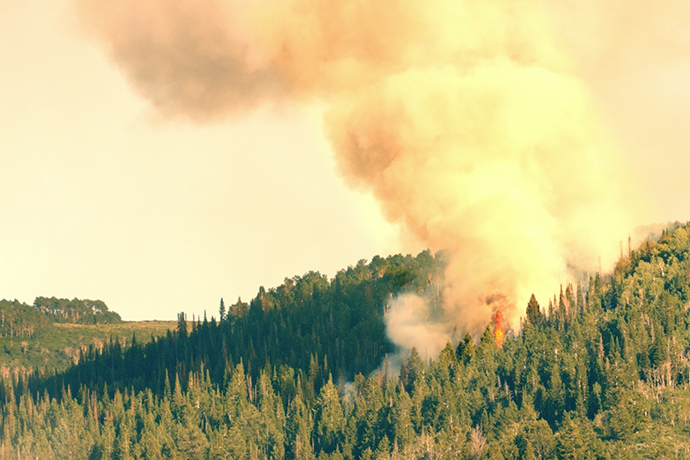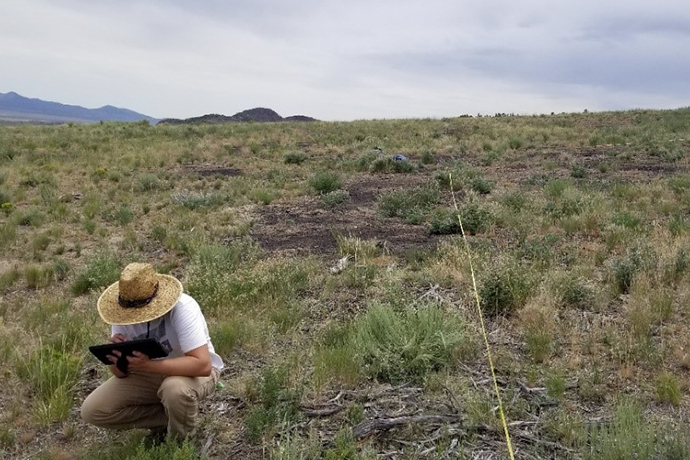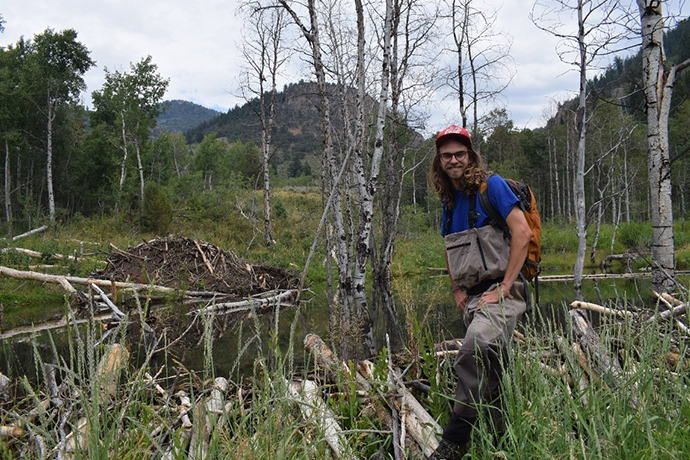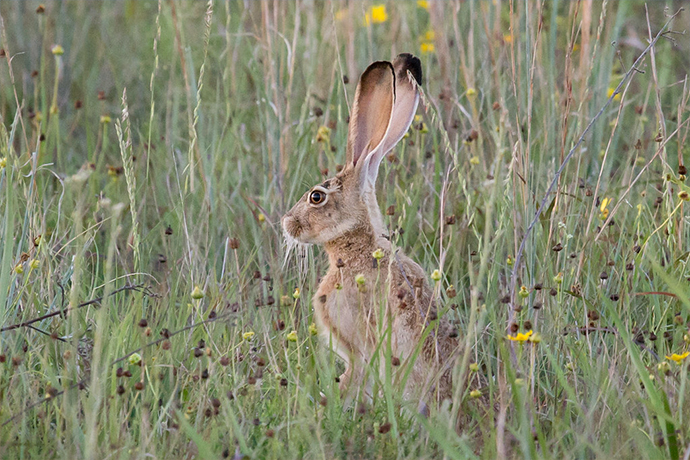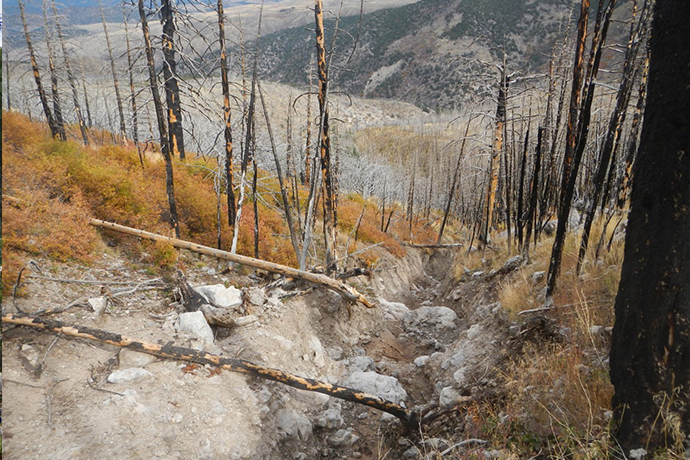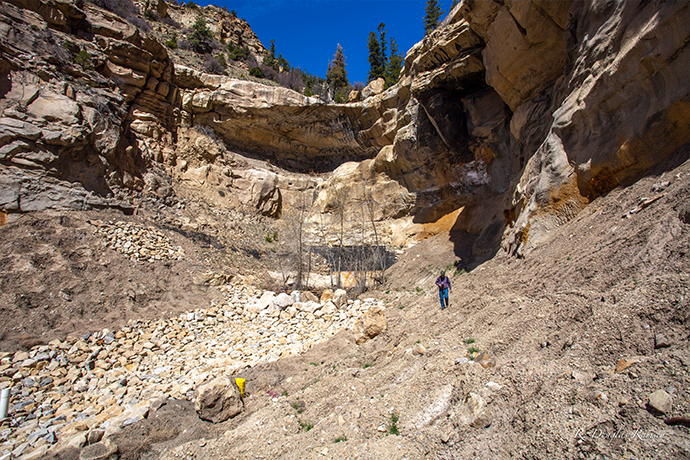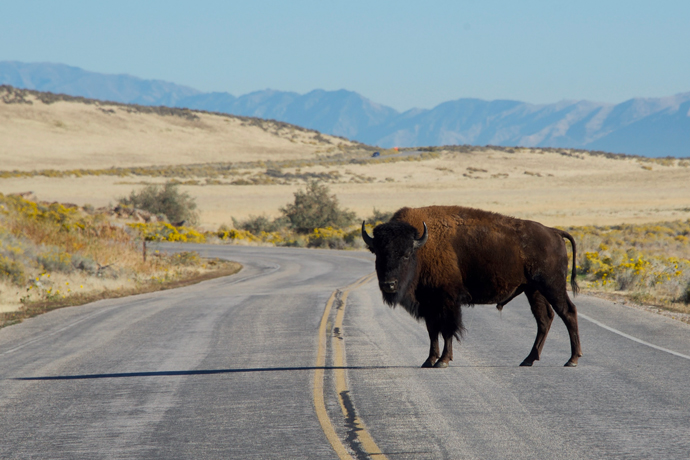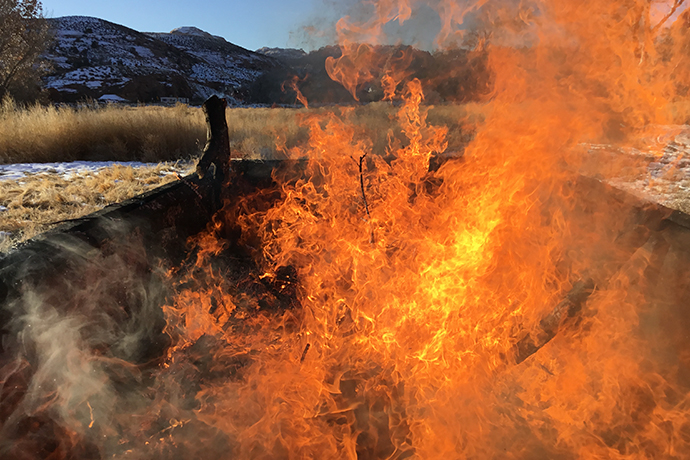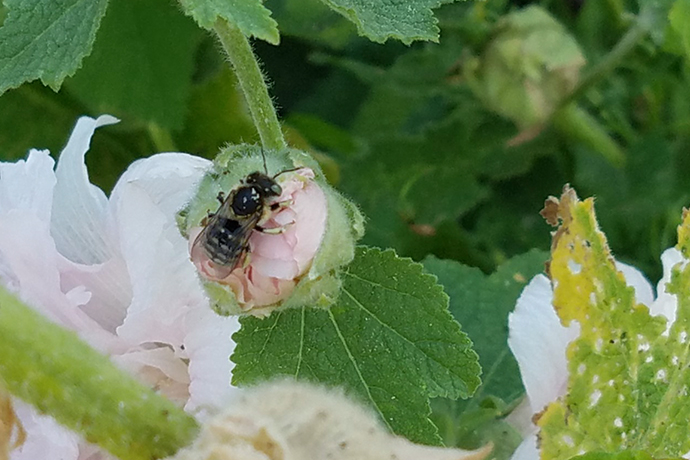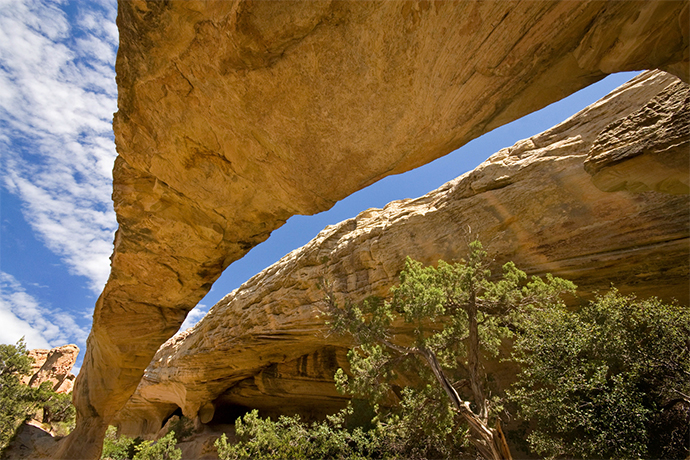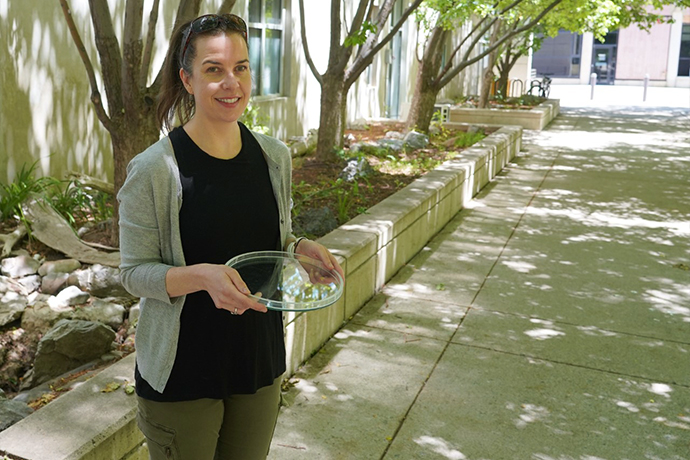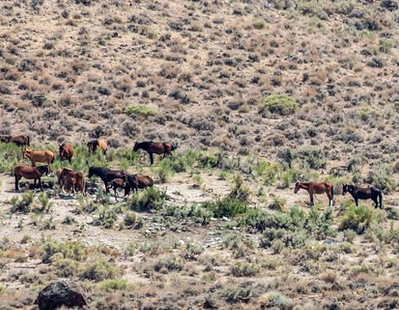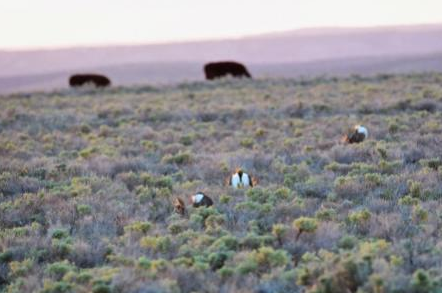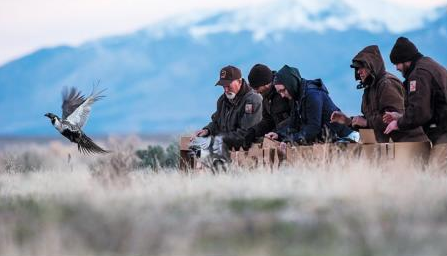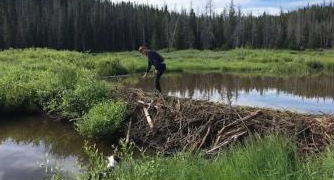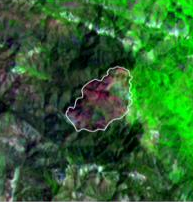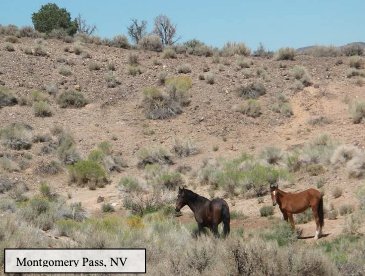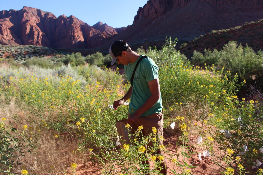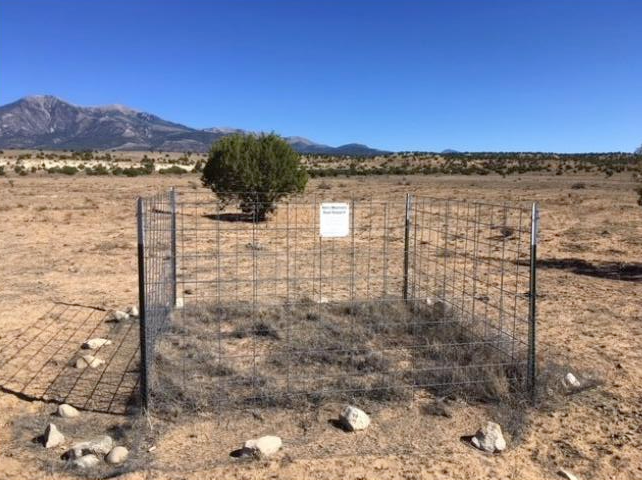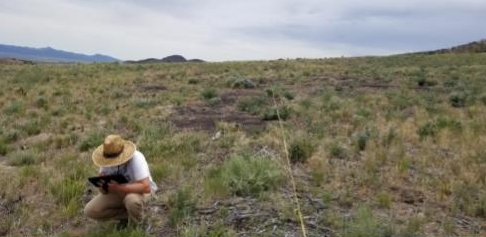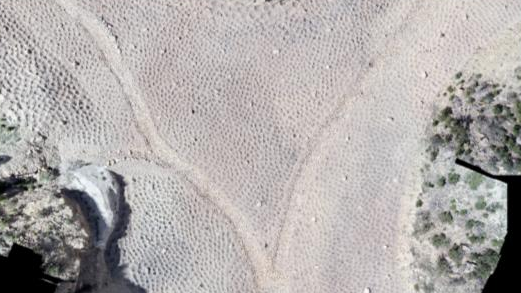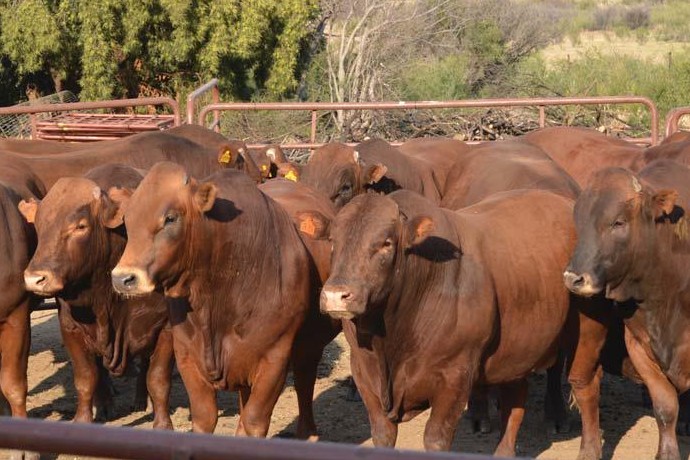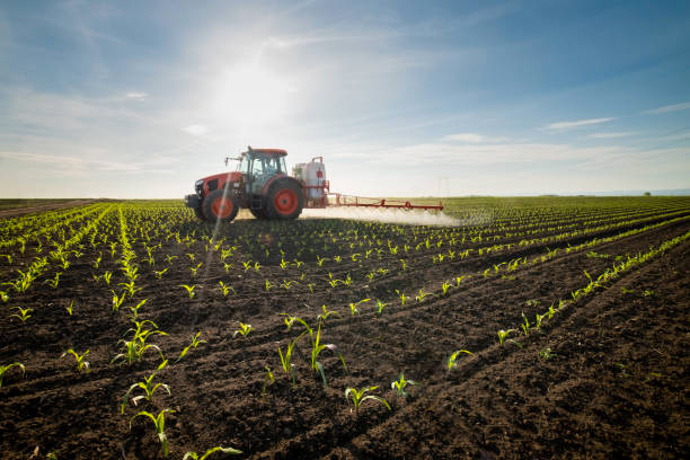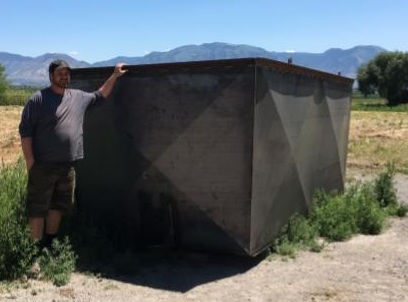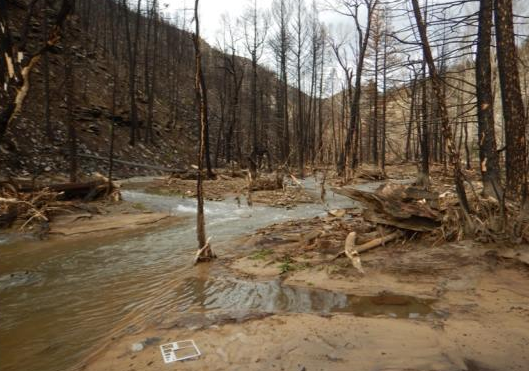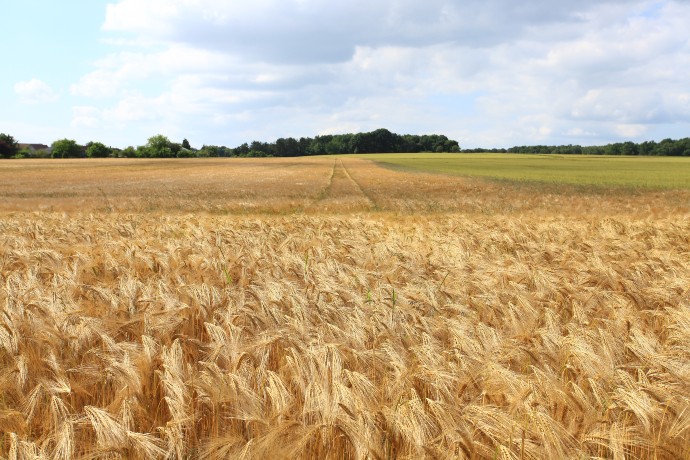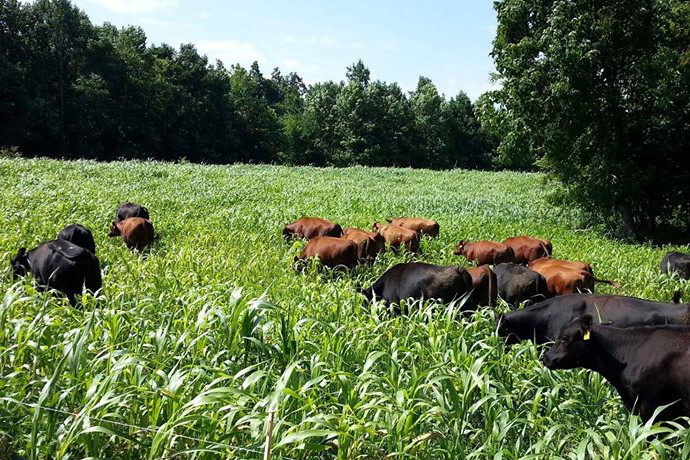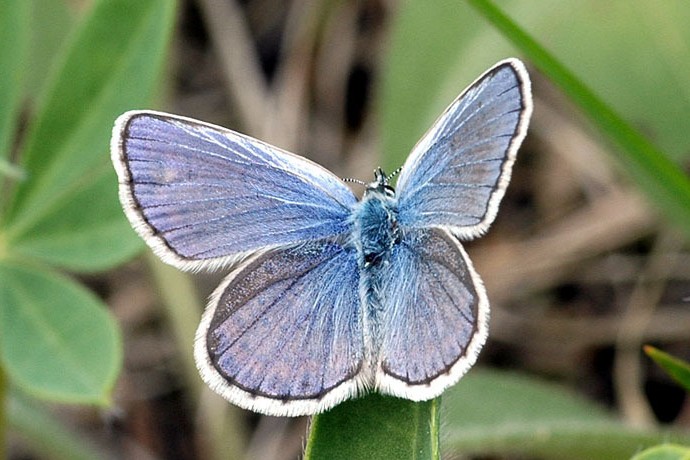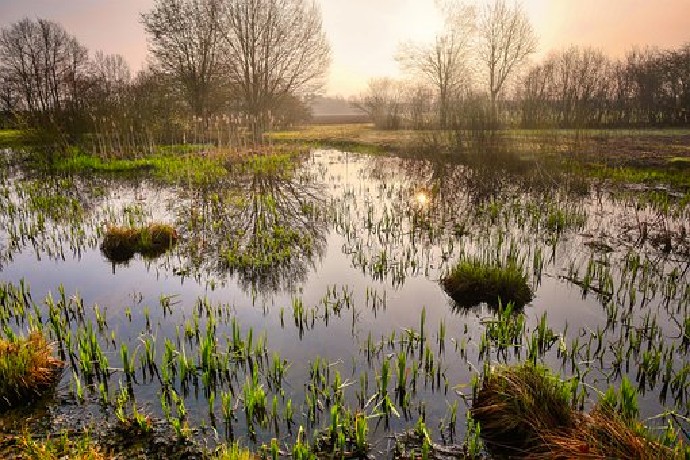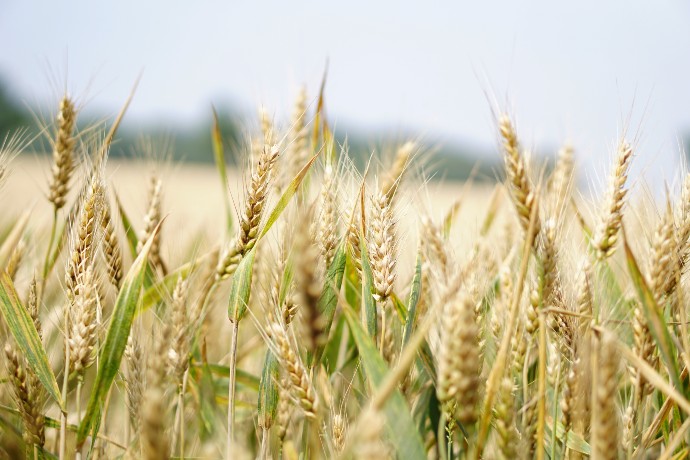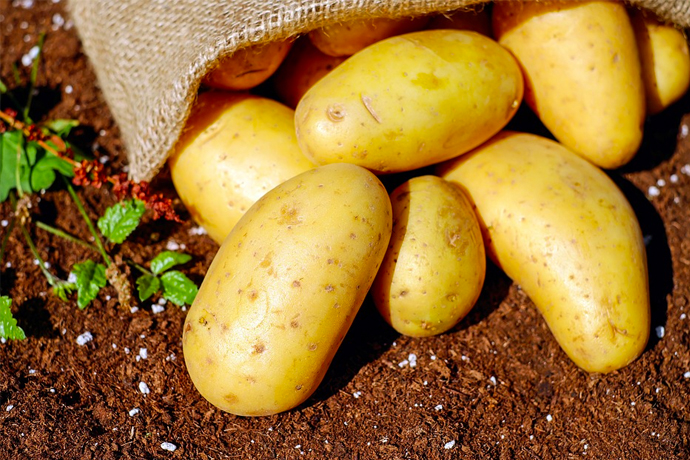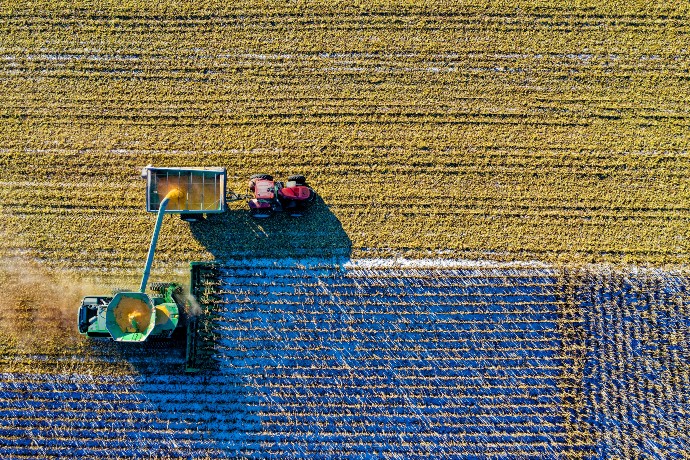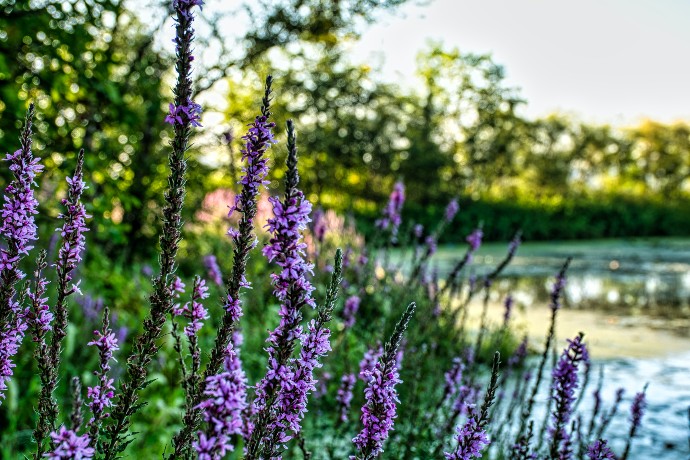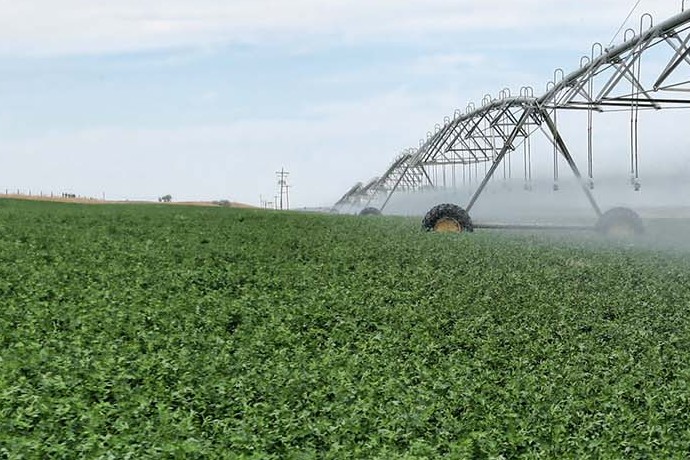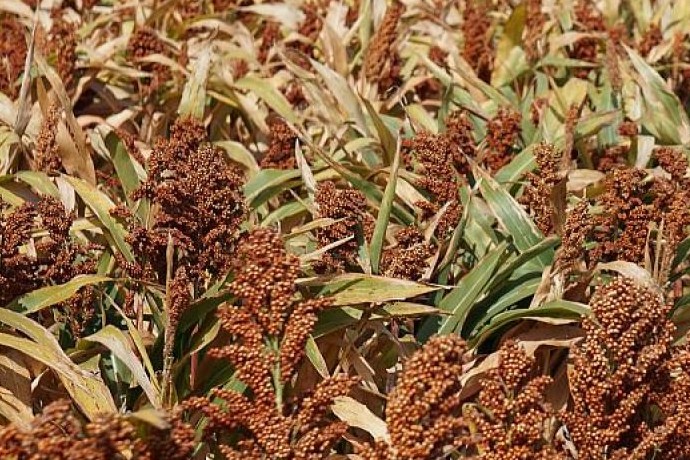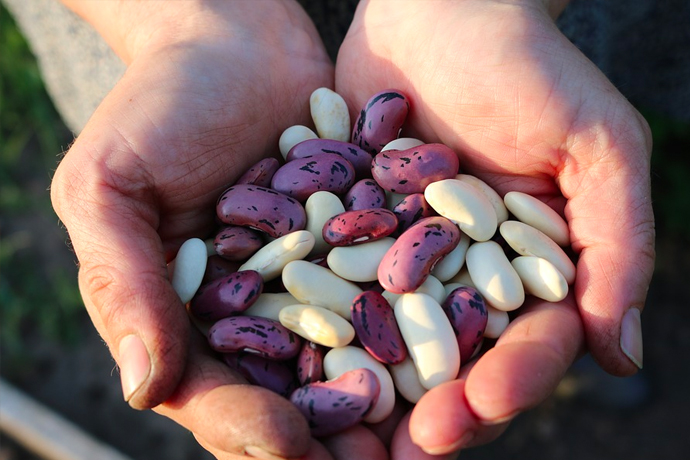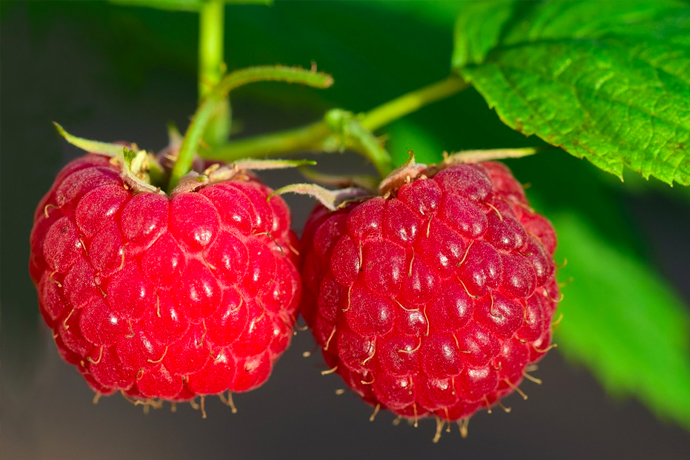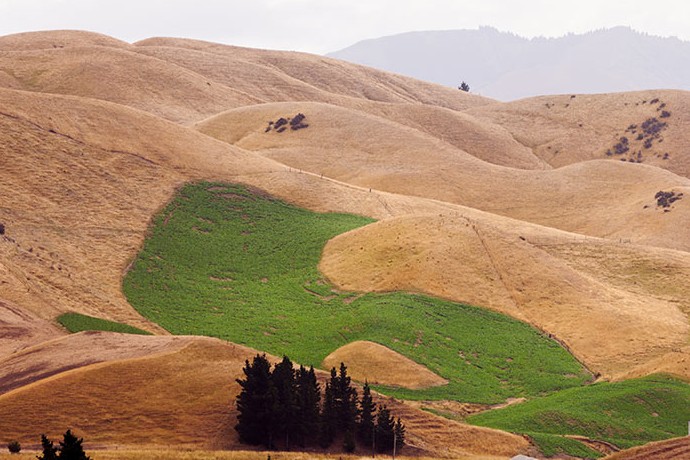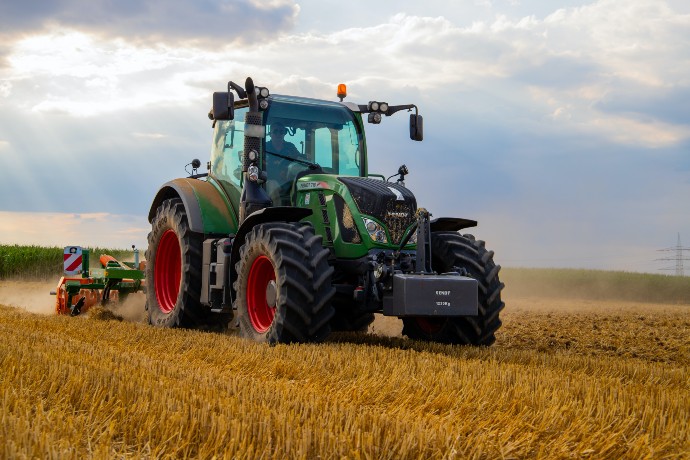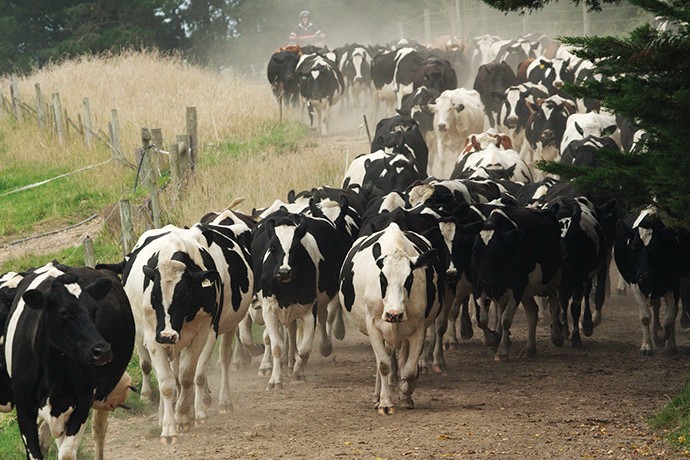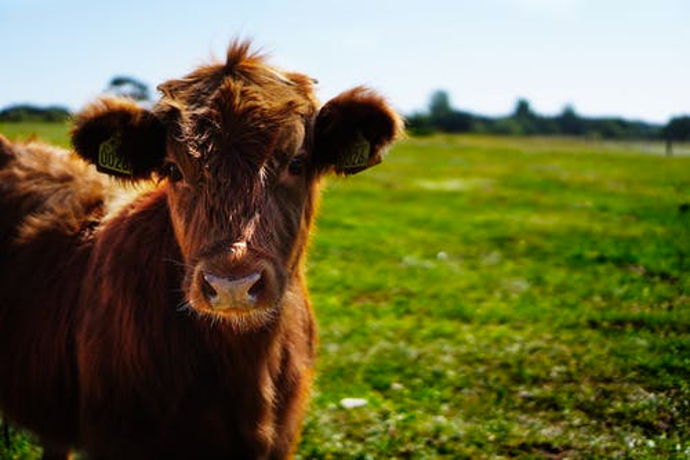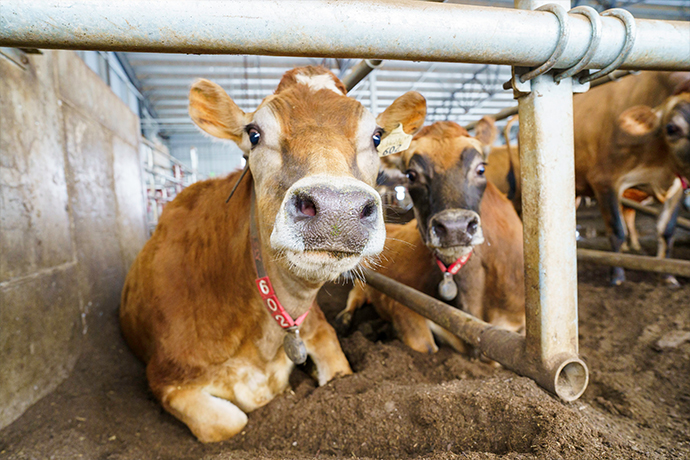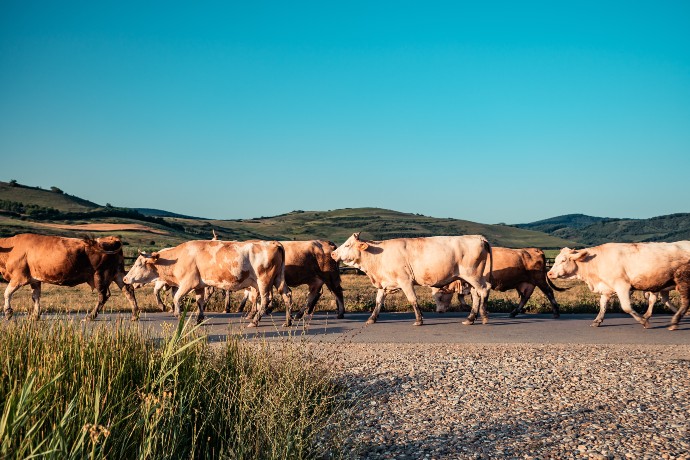Publications
Institute of Outdoor Recreation and Tourism
Institute of Outdoor Recreation and Tourism researchers provide data, information, and knowledge that leads to a better understanding of how to best provide outdoor recreation opportunities.
Utah Forest Institute
Wildfires were once an important driver of ecosystem health in western U.S forests, but decades of fire suppression, natural and human-caused disturbances and environmental change have combined to create conditions that favor wildfires
Assessing Post-fire Reseeding Efforts in Box Elder County
Wildfires on public rangeland have altered the plant communities on which wildlife and grazing animals feed. Annual grasses top the list of invaders that thrive shortly after a fire including non-native cheatgrass that crowds out native grasses and other ...
Beaver Benefit Stream Management and Restoration
Beavers are ecosystem engineers, and important to many arid western ecosystems. Beavers are considered a keystone species, meaning they have an outsized effect on their environment even when their physical size and numbers are not large.
Balancing Agriculture and Nature in Utah’s Henry Mountains
When bison were introduced into one of Utah’s deserts in the 1940s, they migrated to the Henry Mountains in south-central Utah where cattle graze on permits. USU Professor Johan du Toit, a wildland resources researcher, has tackled similar conflicts on mu...
Assessing Vulnerability of Reservoirs to Post-wildfire Sedimentation in the Wasatch Front
Building structures in areas that historically burned is just one of the ways people have failed to recognize that frequent wildfires were part of local ecosystems for millennia. Decades of wildfire suppression have left plentiful fuel for fires
Unmanned Aerial Systems Monitor Mine Reclamation Success
Drones equipped with high-resolution cameras capture images that allow the team to monitor changes where soils were “pocked” by a trackhoe to produce thousands of micro-watersheds and support new vegetation.
The Berryman Institute
The Berryman Institute’s focus is on reducing wildlife damage and resolving human/wildlife conflicts. Among the institute’s activities is a feral and invasive species initiative supported by the Utah Public Lands Initiative.
Big Box Kilns Fight Fire (Greenhouse Gas Emissions and Poor Soil) with Fire
Utah Biomass Resources Group have demonstrated a practical method for producing biochar using simple metal kilns. Why is that useful now? McAvoy says making biochar can mitigate the impact of hazardous fuels for wildfires.
Plants and Pollinators Shape Unique Southern Utah Ecosystems
More species of bees live in the Grand Staircase region of Utah than there are total bee species living in the U.S. east of the Mississippi River. This extraordinary diversity makes Utah an ideal place to study bees and other pollinators.
Directors Message
In Utah, many of the big questions about natural resource and land management involve public lands because they comprise about 75% of the state. That places Utah third behind Alaska (95.8%) and Nevada (87.7%)
Tons of Microplastic Rains into Western U.S. Protected Lands Annually
The world produced 348 million metric tons of plastic in 2017. These same properties lead to progressive fragmentation instead of degradation in the environment. These “microplastics” are known to accumulate in wastewaters, rivers, and ultimately the worl...
Jack H. Berryman Institute for Wildlife Damage Management
Public Lands Initiative funds provided to the Berryman Institute at Utah State University.
Free-roaming Equids and Ecosystem Sustainability Summit
Delegates agreed to the common goal of “healthy herds on healthy rangelands.” Additionally, they shared a common frustration, the increased polarization of all interest groups that results in political and management gridlock of federally protected equids...
Greater Sage-grouse Responses to Livestock Grazing in Semi-Arid Sagebrush Rangelands
The distribution and abundance of the greater sage-grouse have declined in the last 60 years. Range contractions and population declines have been attributed to anthropogenically driven loss and fragmentation of their sagebrush habitats.
Restoration of the Greater Sage-grouse (Centrocercus urophasianus) Sheeprock Sage-Grouse Management Area Populations: National Public Land Policy Implications
Thanks to Public Lands Initiative support, we have leveraged funding from the Yamaha Corporation, the West Desert Adaptive Resources Management local working group (WDARM), the Utah Division of Wildlife Resources (UDWR), the U.S. Forest Service, and the B...
Using Beaver to Benefit Stream Management and Restoration of Public Lands
Utah State University graduate students Marshall Wolf and Karen Bartelt were hired to develop a research program aimed at understanding how the construction and eventual collapse of beaver dams influence the ecological and geomorphic characteristics of fl...
Utah Forest Institute
The Utah Forest Institute hired a full-time technician (Megan Nasto, Ph.D. University of Montana) to lead the expansion of the Utah Forest Institute into field work as well as to complete the fire atlas for Utah.
Developing Decision Support Tools for Management of Free-Roaming Equids on Public Lands in the Mountain West: An Ecological Assessment
Western states rely on public lands for economic benefits derived from livestock grazing, recreation, and hunting. The presence and abundance of wild horses has been associated with wetland degradation, soil compaction, and spread of noxious weeds.
Facilitation of Pollinator Management on Public Lands through Acoustic and Genetic Detection
The goals of our project are to enhance native plant seed collection efforts in southern Utah and provide baseline data for pollinator diversity and abundance on public lands.
Quantifying the Effects of Lagomorphs (rabbits) on Rangeland Condition: A Grazing Study in the Henry Mountains, Utah
Of all farm income generated in Utah, 34% is from cattle and calves produced as meat animals. Over the past five years, the Utah gross income from beef cattle sales has varied from a high of $807 million in 2014 to a low of $498 million in 2017.
Assessment of Post-fire Reseeding Efforts Undertaken in Box Elder County, Utah
Invasive annual grasses alter public western rangeland ecosystems after a fire. Our research goal is to examine the success of post-fire re-vegetation and seeding treatments in Box Elder County Utah.
Unmanned Aerial Systems to Monitor Mine Reclamation Success in Central Utah
This collaboration between Utah State University and the Utah Division of Oil, Gas and Mining (DOGM) will develop an effective landscape monitoring protocol to assist land managers in the evaluation of reclamation activities across the state.
The Institute of Outdoor Recreation and Tourism’s Use of PLI Funding for FY19
Legislative funding from the Public Lands Initiative for FY19 was used to hire a PhD-level Assistant Director of Research and Operations position. The Assistant Director of Research and Operations position plays a leadership role.
Developing an Oxytocin Treatment Protocol for Supressing Estrus in Mares
The sustainability of U.S. agriculture is threatened by the degradation and/or loss of ecosystem services through natural processes or human interventions such as reduced biological diversity, water and air pollution, and loss of soil quality.
Linking nitrification to microbial community in agroecosystems under changing climate
Human activity has more than doubled the input of reactive nitrogen (N) to terrestrial systems, yet N availability remains a common limitation to plant production. Improved understanding of N cycling in agroecosystems is essential.
Big Box Burning
Efforts have focused on preparing to treat hazardous fuels with Big Box kilns this fall and winter. The first of three Big Box kilns is complete and ready, it measures 16’ long, 7.5‘ wide, and 6’ tall. We purchased a 16-foot deck-over aluminum trailer to ...
Assessing Vulnerability of Reservoirs to Post-wildfire Sedimentation in the Wasatch Front
Over the past year, we have made considerable progress and remain on schedule with regard to our work plan and budget. In April, we published a peer-reviewed manuscript in Earth Surface Processes and Landforms, in collaboration with Jon Czuba, assistant p...
Breeding and evaluation of sustainable winter barley cultivars for feed and malting
As water demands increase, and available irrigation water supplies stay constant or decline in Utah, barley production systems will need to adapt to earlier maturity and to make use of winter precipitation and early spring moisture.
Impact of metabolic status and stage of lactation on oocyte and embryo quality in dairy cows
This project is designed to investigate the root cause of sub-fertility in high producing dairy cows. Many theories exist about why first-service conception rates are so low in lactating dairy cows in the US.
Microbial Carbon-use Efficiency in Agroecosystems: The Effect of Drought and N Availability on Soil Microbial Production and Respiration
The current project is partially funded by USDA AFRI Agriculture and Natural Resources Science for Climate Variability and Change Challenge Area,Climate and Microbial Processes in Agroecosystems program grant 2016-67004-24920 to John Stark.
How does inter-population variability affect the outcome of plant-insect interactions: the case of alfalfa and the Melissa blue butterfly
Crop pests negatively impact agricultural productivity and threaten global food security. Herbivorous insects often specialize on an narrow range of host plants. Novel pests can emerge when insects expand their host range to include crop species.
Selection and propagation of native Utah plants for use in water conserving landscapes
There is a need for improved landscape water conservation. This need can be partially met by finding and developing water conserving native plants for use as alternative landscaping materials.
Development and testing wheat cultivars and germplasm for changing environments
Plant breeding is a long-term research project. Because both biotic and abiotic stresses differ markedly between geographical areas, genotype by environment interactions can be exploited to develop cultivars.
Organic Vegetable Cropping in Utah: Enhancing Cover Crop performance with Targeted Nutrient Additions
Growers throughout the Intermountain West need local information on cropping options that allow better nutrient cycling and improved pest management for vegetables. Detailed information on cover crop systems and supplemental nutrient additions are needed...
Understanding Controls on Soil Microbial Nitrogen Use Efficiency in Agroecosystems
Promoting ecosystem nitrogen (N) retention is important for land managers and farmers, as nitrogen losses (via denitrification or leaching) contaminate surrounding natural systems, and represent an expensive waste of fertilizer.
A Framework to Develop New Approaches for Managing Invasive Plants in Natural and Agricultural Systems of Utah
One of the biggest and most complex problems facing society today is the issue of invasive plants. While the general public may not view invasive plants as a threat or even a problem, their importance is well documented scientifically.
Impacts of a novel alfalfa product on milk production and dairy cow performance
In this project we will test how three different rations using novel alfalfa products impact dairy cow performance. In this trial, we will provide the treatment ration for a period of three weeks.
Tannin-containing legumes in pasturelands and their ecological services
The sustainability of U.S. agriculture is threatened by the degradation and/or loss of ecosystem services through natural processes or human interventions such as reduced biological diversity, water and air pollution, and loss of soil quality.
Evaluation of diverse woody germplasm for culinary and rootstock uses in the Intermountain West
A collection of diverse germplasm of the genera Prunus, Juglans, and Pistacia will be evaluated for their suitability for culinary fruit or nut production and for potential use as rootstocks adapted to the cold, dry, and alkaline conditions of the Intermo...
Employing Forage Legumes to Improve the Sustainability of Ruminant Production
The long-term goal of this project is to improve the profitability of Utah livestock producers, reduce the negative environmental impact of ruminant production and increase the food security of residents of Utah and the northern Mountain West.
Developing improved management systems for mechanically harvested fruit crops in Utah
Utah is the 2nd leading tart cherry producing state in the US. In order to remain competitive, new methods are needed for tart cherry production. Other alternative crops are needed that utilize the fruit processing infrastructure that exists with the tart...
Assessing changing precipitation effects on dryland agriculture production
As the atmosphere warms over much of the globe, precipitation events are predicted to become fewer but larger. This increasing precipitation intensity is expected to be a major driver of changes in terrestrial ecosystems in the coming decades.
Optimizing inputs for forages and field crops in Utah
In order to remain economically viable, Utah’s agricultural producers are faced with the need to optimize crop inputs to maximize profits. Crop response to management can vary due to various factors.
Legume-Finished Beef: Achieving Current Production with Greater Environmental, Economic and Social Sustainability
Feeding cattle in feedlots is efficient, but problematic because feed yards produce concentrated ammonia emissions and animals are routinely treated with antibiotics and hormones that can contaminate the environment.
Inclusion of a novel alfalfa product in the ration of dairy heifers
We are going to see how a novel alfalfa product impacts growth and reproductive capacity of holstein dairy heifers when included in the ration as compared to a control ration that does not have any of the novel alfalfa feed.
Functional Genomics and Ecology of Nitrogen Mineralization and Nitrification
Human activities have dramatically altered the global nitrogen cycle by increasing the amount of reactive nitrogen in the environment; human associated inputs of industrially produced N fertilizers and N fixation by crops now exceed the natural N inputs t...
Economic and environmental sustainability of heifer development strategies in pasture-based organic dairy systems
Dairy products constitute the second largest sector of the organic agriculture industry in the US. And dairy cow replacement costs are second only to feed costs in magnitude for the average dairy farm: between one-third and one-fourth of the entire herd i...
Cattle Methane Emissions, Nitrogen Use and Fatty Acid Processing of Legumes
The objectives of project 1329 are to determine the methane emissions, fatty acid concentrations, rates of feed passage, and nitrogen partitioning in waste of cattle on three types of pasture (a grass, a tannin-containing legume, and a non-tannin legume) ...
Irrigated Perennial Legume Pastures for Dairy and Beef Production in the Intermountain West
The goal of this project is to improve the economic and environmental sustainability of beef production in Utah and the Mountain West region. This work addresses concerns that beef consumers have about the welfare of cattle finished in feedlots.


